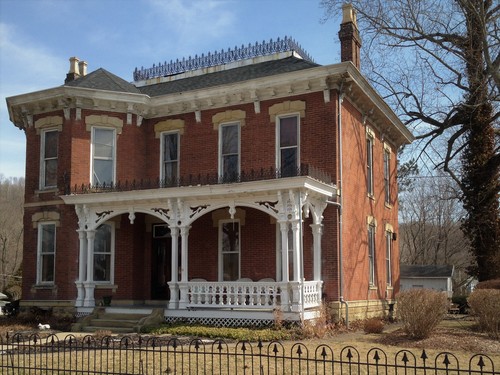 “And he arose, and came to his father.” Luke 15:11-24
“And he arose, and came to his father.” Luke 15:11-24
The parable of the Prodigal embraces the whole of man’s spiritual history. First, there was the road out. “Father, give me the portion of goods that falls to me.” Luke 15:12. Note the agitation that angered him. At some point in Junior’s life, discontentment boiled up. “I hate this curfew, I can’t play the new music, I can’t wear my hair like I want!” Who knows what the conflict was? It all came down to a clash of wills. Next, note the allurement that enticed him. Take the Big Apple, for instance. Tall and sleek, its glass and marble towers fascinate viewers from a distance. Walk the neighborhoods of Harlem, Bronx, Brooklyn and Queens, however, and you see the seamier side of the glittering jewel. The “far country” for the Prodigal was too far away for him to notice the slums, the addictions, the pain and breakdowns. Third, note the action that propelled him. Despite all attempts to stop him from certain downfall, the young man left anyway. Why? Why did he turn a deaf ear to all the warnings? How many people wake up halfway through their lives and say, “How on earth did I get here?” Easy. Just do nothing, get preoccupied with trivia, major on minors and pay no attention to the weightier matters of the soul and spirit. “The heart is deceitful above all things, and desperately wicked: who can know it?” Jeremiah 17:9.
The road came to an end. “And when he had spent all, there arose a mighty famine.” He lost his resources. Sin always has an impoverishing effect. The familiar mantra of sin is—lose, lose, lose. He lost his respectability. This rich boy from a solid, stable family was not only feeding the pigs, but trying to eat their food. Sin never plays nice. The Bible says, “Be sure your sin will find you out.” It takes clean and makes it dirty. It takes well and makes it sick. In the end, the prodigal lost his reason for living. He had barreled headlong past a huge, yellow, diamond-shaped sign that said, “Dead End.” His money was gone, his friends were gone, his dreams were gone, and with it all went meaning and hope. Something happens at the lowest point of sin. Nothing makes any sense. This is where much of the world we live in is at the present. It’s called nihilism. Nihilism holds that life is pointless and human values are worthless. It rejects all religion and morality. Sin is a fantastic lie. Rather than making you wise, happy and God-like, turns you into a fool, fills you with infinite sadness and makes you into a child of the devil.
The road home was the only answer. It’s called a reality check. “And when he came to himself, he said, I will arise and go to my father.” Luke 15:17-18. Going home consisted of repentance: he had to stop lying to himself; of decision: he decided to return home and to the truths he had forsaken; of restoration: he had to restore his rejoicing. In his present condition and location, he would never hear or never know rejoicing. One more night with the pigs made no sense. Rejoicing was back home.
Are you homeless? Get up, brush yourself off, and go home. People love you there. Everything that gives meaning to your life is there. Your values, your definitions, your reason for being resides at a place called home. No, not necessarily your old homeplace or locale, but your inner convictions, the tried and true elements of sustaining faith. That’s what home means. Admit it. That’s where your heart really is. “Stand in the ways and see, and ask for the old paths, where the good way is, and walk in it; then you will find rest for your souls.” Jeremiah 6:16